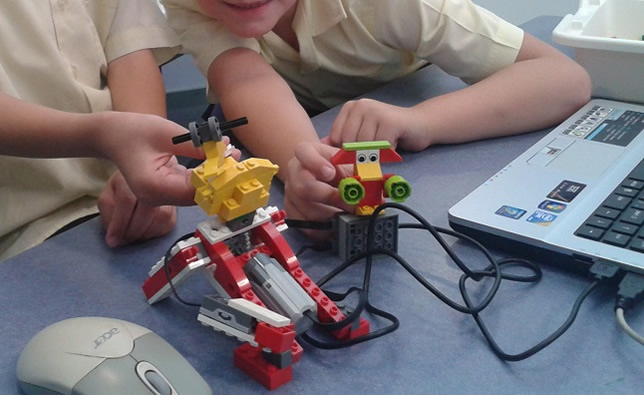Maryville U Gets Grant To Develop New STEM Curriculum
Maryville
University in St. Louis has received a grant worth
nearly $125,000 to develop a new math curriculum tailored for third- and
fourth-graders who live in low-income areas.
The Monsanto
Fund, the philanthropic arm of Monsanto, has given the university $124,995 for a new program
called Children
Using Robotics for Engineering, Science, Technology and Math (CREST-M).
The
curriculum will use Lego
WeDo robotics in a hands-on way to demonstrate some of
the principles that would encourage interest among students in science,
technology, engineering and math (STEM).
"One of the problems with the way math is often
taught is that
just a workbook is used," said Steven Coxon, an assistant professor
of education
at the university. "In this case, the students will learn math in a much
more
engaging and motivating way."

Educators at Maryville will develop the curriculum
this spring
and test it during a two-week program in July that will involve 80
students and
18 teachers from the Ferguson-Florisssant and Ritenour school districts in
suburban St. Louis.
According to Coxon, the goal will be to demonstrate
that
children who are traditionally underrepresented in STEM fields —
minorities who
live in low-income areas — can attain the same skills and aptitudes as
others
when properly engaged in learning.
"We want to create something for high-poverty
districts that
increases interest in, ability for and knowledge of STEM fields," Coxon
said.
Maryville plans to eventually make the curriculum
available to
teachers and schools throughout the United States, with publication
sales
funding the cost of professional development for participating teachers.
About the Author
Michael Hart is a Los Angeles-based freelance writer and the former executive editor of THE Journal.